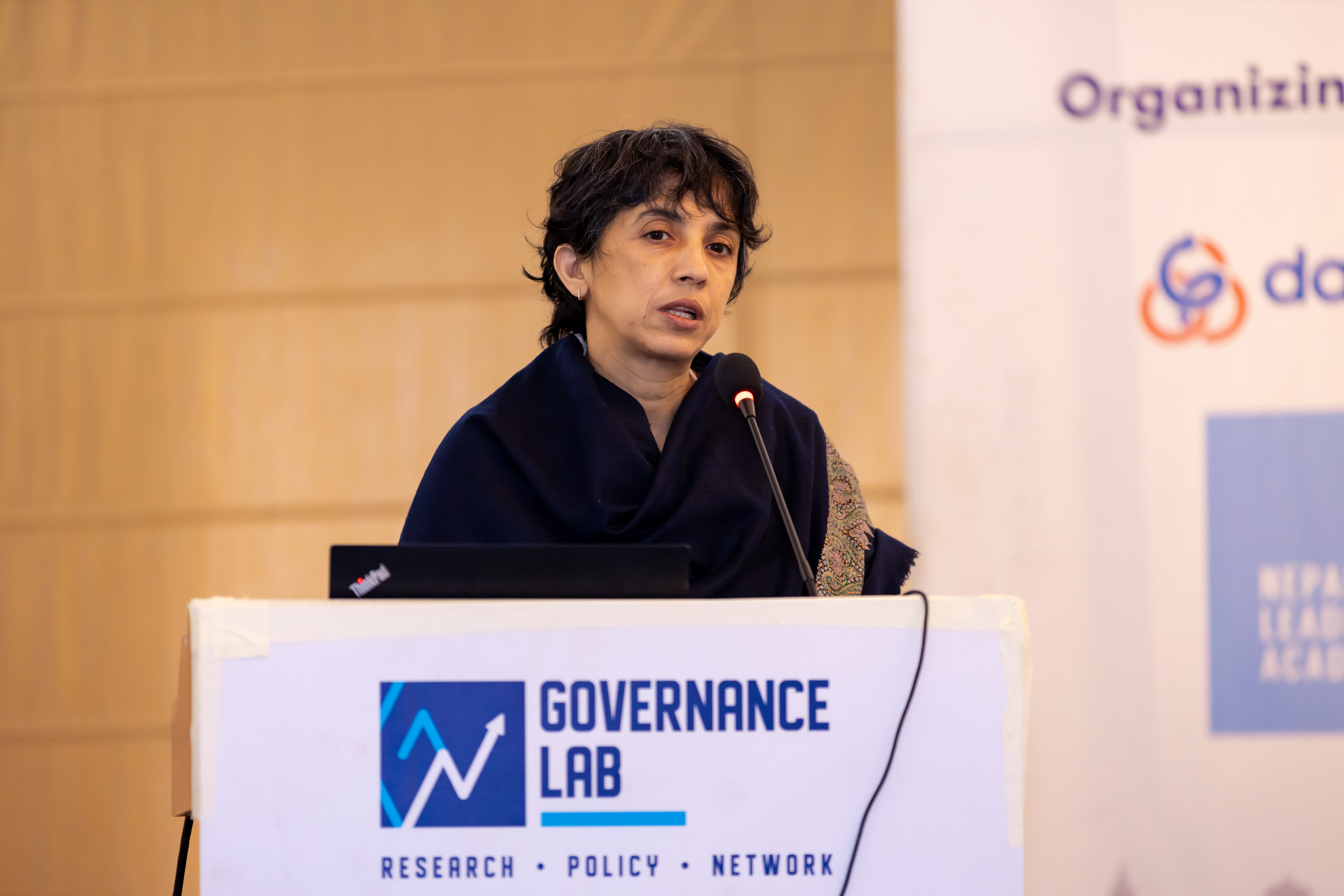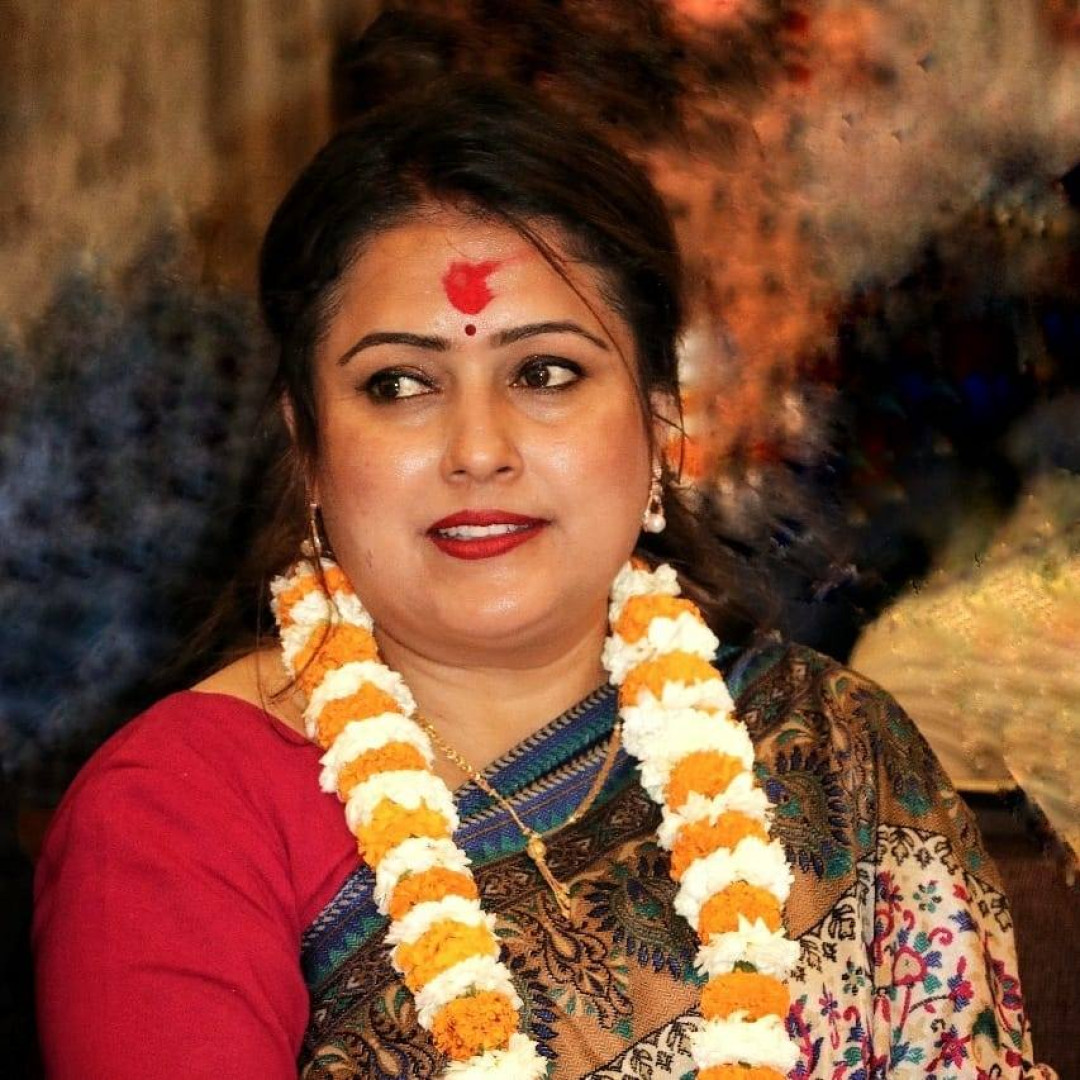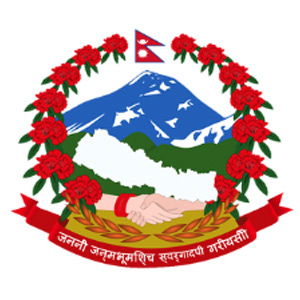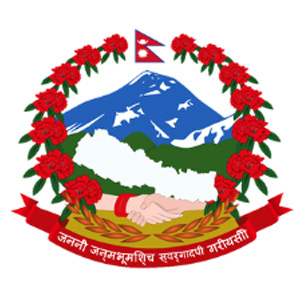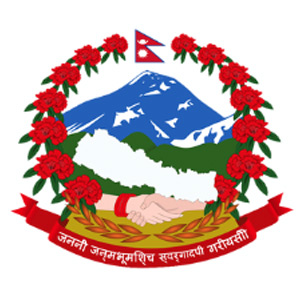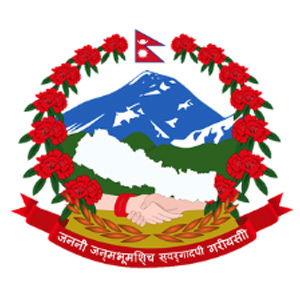Stakeholders from the public policy and governance sectors joined forces to discuss governance innovations for inclusive development at the National Governance Symposium 2023, organized by the Governance Lab in collaboration with the Ministry of Federal Affairs and General Administration, the Ministry of Finance, the National Planning Commission, the Office of the Prime Minister and the Council of Ministers, and organizing partners Nepal Leadership Academy and Daayitwa. The 2-day symposium themed “Governance Innovations for Inclusive Development” held in Kathmandu brought together more than 300 relevant stakeholders from the government, private sector, civil society, and international scholars and development agencies.
The symposium was a successful gathering of policy researchers, advocates, and decision-makers to promote governance innovations for inclusive development. Day 1 featured 'Cultivating Innovation: Nurturing Youth-Government Collaboration' and discussions on 'Breaking Barriers: Moving Beyond Representation to Dignity and Self-Determination' and 'Building Bridges: Making a Case for National Women Enterprise Development Policy' for evidence-based policies and women's enterprise development. Whereas in Day 2, the National Governance Symposium explored impactful sessions on inclusive governance, including 'Using Large-scale Data Collection' and 'Inclusive Climate Governance', 'Inclusive Climate Governance Challenges and Way Forward' and 'Rebuilding Hope: Reintegrating Migrant Returnees in Domestic Employment in Nepal'.
The Chairperson of the Governance Lab, Dr. Pukar Malla, made the opening remarks on Day 1 and said, Inclusion is not a mere aspiration but the linchpin of Nepal's sustainable development. Neglecting the pivotal roles of women, youth, Dalits, Madhesis, and other marginalized groups equates to forsaking a substantial portion of our demographic tapestry. Governance, viewed beyond government as a collaborative synergy among government, civil society, and the private sector, catalyzes transformative development outcomes. The symposium seeks to unravel innovative solutions and cultivate multi-stakeholder partnerships. It is a collective endeavor to embrace positivity, promote inclusion, and fortify governance, paving the way for the real inclusive development of Nepal."
Inaugurating the National Governance Symposium 2023, Dr. Baikuntha Aryal, Chief Secretary, Government of Nepal, said, “In recognizing the pressing need to 'engender' Nepal's macroeconomic framework, we are steadfast in our commitment to genuine inclusivity. This underscores our sincere efforts to amplify and honor the invaluable yet frequently discounted contributions of women in Nepal. Our call is for a holistic approach that seamlessly integrates the diverse perspectives and essential endeavors of women, shaping a more equitable and dynamic economic landscape for our nation.”
The Keynote Speaker of the event, Dr. Mukta Lama Tamang, Central Department of Anthropology, TU, took the stage to address the dynamics of evidence-based policymaking in fostering inclusive development by discussing the crucial role of solid evidence and data in ensuring policy effectiveness for catering to the population's diverse needs. Additionally, Dr. Tamang highlighted the transformative power of art activism, especially among the youth, as a transformative force capable of challenging stereotypes and promoting inclusivity through creative and artistic expressions.
On the second day, Daayitwa's Executive Director, Susit Dhakal, underscored the imperative of inclusion for sustainable development in his opening remarks. He shared, “For sustainable development, inclusion is a must, just like in Daayitwa's ongoing programs like REAP and DNPSF. Through these programs, I want to highlight that Daayitwa has been working in the sectors of social, economic, and political inclusion since 2013.”
Ms. Laxmi Devi Pandey, Chairperson, Hupsekot Rural Municipality and Chairperson, National Association of Rural Municipalities in Nepal, addressing the event as the special speaker on the second day, said, "As we become mindful and proactively strive to enhance women's participation and representation, our collective efforts can yield the desired outcomes by the 2027 elections. My aspiration is to witness the election of 100 women at decision-making levels in the upcoming 2027 elections."
Professor Rohini Pande, Director of the Economic Growth Center and Faculty Director of Inclusion Economics at Yale University, presented on "Understanding Political Inclusion: An Evidence-Based Approach."
The National Governance Symposium concluded with Dr. Nisha Onta, Executive Director of the Governance Lab, quoting and expressing a steadfast dedication, stating, “We commit to take all discussions forward in partnership with all governance stakeholders as research, policy dialogue, and other engagement. So we call all of you to come be part of the Daayitwa Abhiyaan.”
Making his closing remarks, Mr. Krishna Gyawali, former secretary and senior governance advisor, Daayitwa Abhiyaan, highlighted, “The quota system is not the only method to provide inclusion. The capability of a person should also be included, and structural inequity is still present and cannot be solved without the intervention of the state. State refers to not only the government; this includes civil society and the market.”
The Symposium brought together Secretaries from various relevant Ministries as speakers on various Case Sessions, Governance Dialogues, Knowledge Seminars and Keynotes Dr. Baikuntha Aryal, Chief Secretary, Government of Nepal; Dr. Kiran Rupakhetee, Joint Secretary, Office of the Prime Minister and Council of Ministers; Dr. Sohan Sha, Member, Policy and Planning Commission, Madhesh Province; Ms. Ava Shrestha Karn, Joint Secretary, Women Empowerment Division, Ministry of Women, Children, Senior Citizen; Mr. Yam Lal Bhushal, Joint Secretary, National Planning Commission; Dr. Bhishma Bhushal, Province Secretary, Ministry of Social Development, Bagmati Province; Mr. Khom Raj Koirala, Joint Secretary, Office of the Prime Minister and Council of Ministers; and Dr. Ram Prasad Ghimire, Secretary, Ministry of Finance, chaired various sessions.







